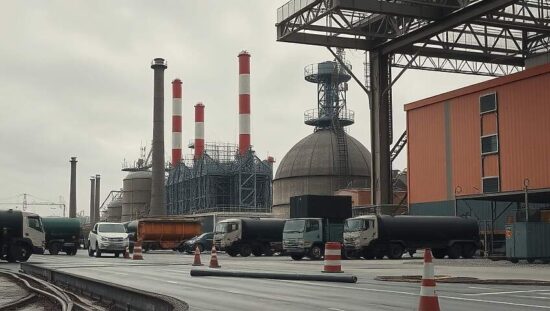Berlin is edging closer to implementing a controversial industry electricity price, a move intended to shield energy-intensive businesses from soaring costs and prevent investment flight. A coalition spearheaded by the government-owned German Energy Agency (Dena), alongside think tanks Epico Klima-Innovation and Agora Energiewende, has formulated a detailed proposal for the planned scheme, according to a report in Handelsblatt.
The core of the concept involves subsidizing energy-intensive businesses, allowing them to access electricity at a flat rate of five cents per kilowatt-hour for half of their individual consumption. The eligibility pool would be defined by the EU’s “KubeL” list – a catalog of companies with significant electricity demands operating within a competitive international environment. In Germany, this encompasses approximately 2,000 companies consuming around 100 terawatt-hours annually.
The proposed initiative carries a significant price tag. Dena, Epico and Agora estimate the cost to the federal government would be approximately €1.5 billion, escalating to €4.5 billion over the scheme’s permitted three-year lifespan, dictated by EU state aid regulations.
However, the think tanks are issuing a stark warning: the industry electricity price is merely a temporary fix. Epico founder Bernd Weber cautioned that it functions as “a painkiller” and does not address the underlying causes driving investment relocation. He stressed the need for concurrent structural reforms to ensure the long-term viability of competitive industry electricity prices.
Complementary proposals included in the concept paper emphasize strengthening direct contracts between companies and renewable energy operators – known as Power Purchase Agreements (PPAs) – through mechanisms like investment guarantees. Maintaining the current pace of renewable energy expansion is also deemed essential.
The plan has received political backing. Federal Minister for Economic Affairs, Katarina Reiche (CDU), announced the target launch date of January 1, 2026, signaling that negotiations are in their final stages. Critics, however, warn that while the scheme might offer immediate relief, its limited timeframe and the potential for market distortions necessitate a broader, more sustainable strategy for securing Germany’s industrial competitiveness and addressing the root causes of energy pricing challenges. The long-term implications of such a targeted subsidy and its potential impact on other sectors, remain significant points of debate within the German political landscape.





